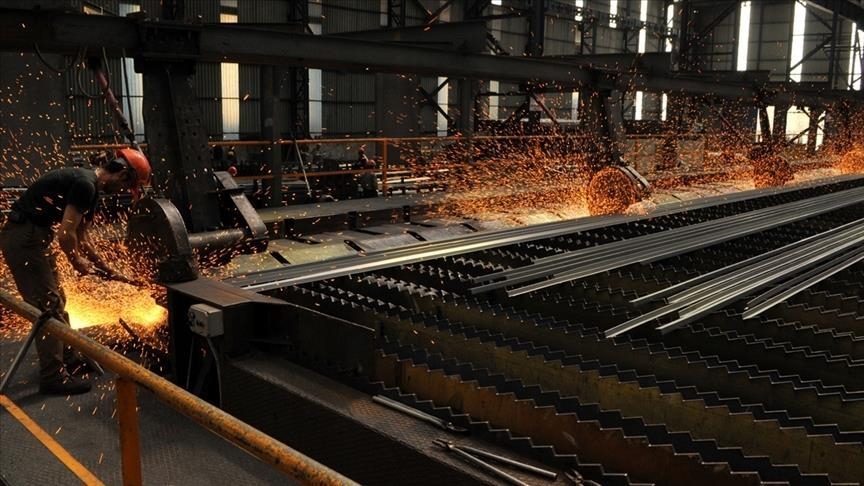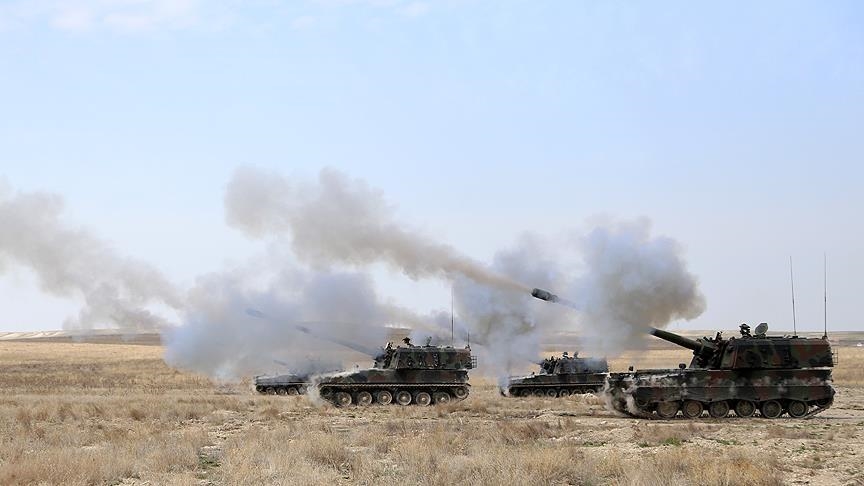Türkiye becomes Europe’s top steel producer, ranks 7th globally
ISTANBUL
Türkiye has become Europe’s largest and the world’s seventh-largest steel producer as of August, producing 36.9 million tons last year, according to a sector representative.
Veysel Yayan, secretary-general of the Türkiye Steel Producers’ Association (TCUD), told Anadolu that steel remains a vital raw material for the global economy due to its widespread use in construction, automotive, energy, and machinery. He said its durability, recyclability, and wide range of applications make it indispensable for industrial growth.
Steel production is not only a measure of industrialization but also a reflection of a country’s economic power, highlighting its role in renewable energy and infrastructure projects.
According to the World Steel Association, China led global crude steel output last year with 1 billion tons, followed by India with 149 million tons, Japan with 84 million tons, and the US with 79.5 million tons. Russia produced 71 million tons, South Korea 63.6 million, Türkiye 39.6 million, Germany 37.2 million, Brazil 33.8 million, and Iran 31.4 million tons.
As for Türkiye, the Turkish steel sector exports to a wide range of countries stretching across the globe, as Yayan stated that the sector has a special position in the global supply chain, reaching over 180 countries.
“Türkiye was the world’s eighth largest and Europe’s seventh largest steel producer last year, but it has climbed the ranks to seventh largest worldwide and the largest in Europe in the first eight months of 2025,” he said. “Our flexible and resilient production, structure, quality, and early delivery set us apart from other countries’ steel sectors, while ours can continue to produce without interruptions during economic fluctuations and global crises, such as the COVID-19 pandemic.”
– Trade shifts amid protectionist measures
Yayan noted that fluctuations in China — which accounts for 53% of global crude steel supply — have wide repercussions for other markets. Protectionist measures, particularly those introduced under US President Donald Trump’s administration, have also reshaped trade flows.
“After the US imposed a 50% tariff on steel, the EU’s bid to reduce steel product quotas by 57%, and countries like Mexico and Canada’s plans to take similar measures showed that a large part of the global steel market will be closed to external supply, which makes it so that large-scale producers like China, other countries in the Asia-Pacific, and Russia will turn to the Turkish market as they can’t export to those other markets with barriers in place,” he said.
He warned that such restrictions could reduce Türkiye’s sales in Europe — its largest export destination — affecting capacity use and profitability. In the long term, these measures could weaken the sector’s investment appetite and delay expansion plans for further capacity expansion.
– Industry resilience and green transformation
“However, despite all this, the Turkish steel sector strives to maintain its competitiveness and develop new strategies to boost market diversity by looking to alternative markets, while focusing on high value-added production and green transformation investments to further solidify its position in the global market,” he said.
He said a strong steel industry underpins economic growth and national security, while dependence on foreign producers increases supply risks in key sectors and opens up the country’s decision-making processes to be prone to external factors.
He mentioned that the Turkish steel sector, in particular, has made comprehensive investments into green transformation to boost production capacity to meet the domestic demand and to seize the export potential in recent years.
“Investments in the special-grade steel production used in the auto, defense, energy, and shipbuilding sectors are gaining momentum, and these investments boost the country’s production volume, product diversity, and global competitiveness,” he said.
He noted that the Turkish steel industry can meet domestic consumption needs with its capacity, but the utilization of said capacity remains relatively low at 63%. “The share of imported inputs in total consumption in Türkiye is around 48%, which is two and a half times more than the EU’s level of 20%, which is a situation causing the bloc serious concern.”
He urged policies to cut import dependence, support domestic production, reduce energy costs, and expand financing for environmental investments to boost the domestic steel sector’s efforts.
Anadolu Agency website contains only a portion of the news stories offered to subscribers in the AA News Broadcasting System (HAS), and in summarized form. Please contact us for subscription options.




